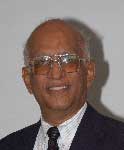 |
 |
Operator Paradox
By : Jim Pinto, When the term "operator interface" is used, who is "the operator"? Where does one find enough good operators to operate the system effectively? Improved effectiveness comes not just from training operators to use complex systems, but also from developing systems that adapt effectively to maximize throughput with minimal operator involvement.
May 2011
|
 Large automation systems and processing plants use complex control systems to keep processes operating optimally. Many of these systems have evolved from earlier annunciators and alarm systems.
The newer computer-based systems were "enhanced" to include new functions, some available at no extra cost just by clicking software settings. But the effective use and management of these capabilities are often overlooked.
Large automation systems and processing plants use complex control systems to keep processes operating optimally. Many of these systems have evolved from earlier annunciators and alarm systems.
The newer computer-based systems were "enhanced" to include new functions, some available at no extra cost just by clicking software settings. But the effective use and management of these capabilities are often overlooked.
The operator interface should be the gateway to embedded knowledge that monitors and controls data to manage the desired results. The system should manage continuous improvements through process optimization - analysis of all the process variables, allowing or directing adjustments of correlated variables to achieve better results. As the system gets better, the optimizing adjustments will be generated within the system - not by operators. There are two optimization approaches: historical review to determine what mix of variables resulted in peak performance; and extrapolating, calculating and predicting the optimum mix of controlled variables that will provide future improvements. Traditionally, operators build knowledge and experience through handling normal production as well as abnormal emergencies and events. They learn how to cope with abnormal situations and emergencies through similar past experiences. They develop an ability to predict what will occur in certain situations and learn what actions will be needed to ensure safe and effective operation. What is needed is for the system to "learn" continuously from operator experiences, normal and abnormal, and that learning should remain in the system, minimizing dependence on experienced human operators. People can only simultaneously monitor and act on a limited number of things at a time. It is evident that alarms and required corrections must only be presented at a rate that can be assimilated and acted upon by human operators, particularly when there are emergencies or unusual conditions. Alarms must be capable of directing the operators' attention to the most important problems that need to be acted upon, using priorities to indicate the degrees of importance. In crisis situations, operators can be barraged with alarms, and proper response to all of them is difficult (perhaps impossible) to achieve. In emergency conditions, human intervention is often ineffective, and the control system must be self-correcting and self-optimizing - which means that the system must adapt heuristically to reduce, not increase, the need for operator intervention. Most process plants keep trying to cope with the challenges of continually increasing safety and efficiency requirements, while at the same time allowing for operator inexperience. In the United States and developed countries, the shortage of experienced operators is compounded by the retirement of an aging workforce. In Second and Third World countries, which is where growth is occurring today, skilled operators are simply not available. Who are operators?So, when the term "operator interface" is used, who is "the operator"? With rapidly accelerating technology in a global environment, where does one find enough good operators to operate the system effectively, and how long does it take to train them?Many process plants use simulators to train operators. But simulators alone cannot develop the needed expertise for problem detection, analysis of events and decision-making, especially in emergency situations. For this, knowledge acquired through actual accumulated experience is vital. My contention is that this can only be accomplished by getting the knowledge-based system itself to accumulate the experience, to minimize the need for experienced operators. The operator paradox is this: Improved effectiveness comes not just from training operators to use increasingly more complex systems, but also from developing systems that adapt effectively to maximize throughput with minimal operator involvement. If operators cannot be trained to use the system, the system must adapt to the needs of available operators. 
|
 Pinto's Points How to win in the Automation Business Go shopping - books, electronics, CD/DVD Selected advertising coming here. Contact Jim Pinto for rates. |
Return to Index of all JimPinto Writings

 Return to JimPinto.com HomePage
Return to JimPinto.com HomePage
If you have ideas or suggestions to improve this site, contact: webmaster@jimpinto.com
Copyright 2006 : Jim Pinto, San Diego, CA, USA
